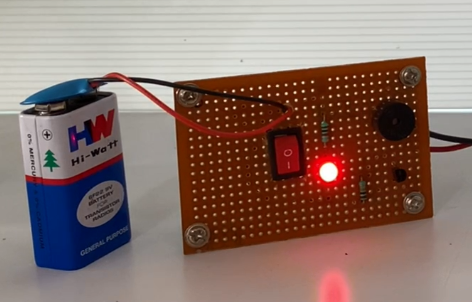
Image Source: Google
Water leaks can cause significant damage to your home, leading to costly repairs and potential health hazards. To prevent such disasters, investing in water overflow sensors is a proactive step towards protecting your property. If you need more information about water overflow sensor, you may visit here https://crystalfountains.com/product-category/sensors/
These devices can detect leaks early on and alert you before the situation escalates. To help you choose the best water overflow sensor for your needs, we have reviewed the top-rated options available on the market.
Types of Water Overflow Sensors
1. Probe Sensors
- Probe sensors are placed in areas prone to water leaks, such as under sinks or near water heaters.
- These sensors detect water accumulation and trigger an alarm or notification.
- Probe sensors are ideal for localized monitoring of specific areas.
2. Non-Invasive Sensors
- Non-invasive sensors use technologies like infrared or ultrasonic waves to detect water presence without direct contact.
- They are easy to install and suitable for detecting leaks in larger areas.
- Non-invasive sensors are convenient for monitoring basements, laundry rooms, or other expansive spaces.
Top Rated Water Overflow Sensors
1. Honeywell Lyric Wi-Fi Water Leak and Freeze Detector
- Features temperature and humidity sensors in addition to water detection.
- Connects to your home's Wi-Fi network for real-time alerts on your smartphone.
- Battery-operated with a long battery life for continuous monitoring.
2. Govee WiFi Water Sensor
- Provides real-time alerts via the Govee Home app on your phone.
- Allows for easy placement with its compact design and multiple mounting options.
- Battery-powered and energy-efficient for long-term use.
3. Zircon Leak Alert WiFi
- Connects to your home's Wi-Fi network for instant alerts on water leaks.
- Features a loud alarm, flashing light, and email notifications for multiple alerts.
- No hub required for connectivity, making it easy to set up and use.
Factors to Consider When Choosing a Water Overflow Sensor
1. Detection Technology
- Consider whether you prefer probe sensors for targeted monitoring or non-invasive sensors for broader coverage.
2. Connectivity
- Look for sensors that connect to your home's Wi-Fi network or a dedicated app for convenient alerts.
3. Power Source
- Determine if you prefer battery-operated sensors or those that require a power source for continuous monitoring.
4. Alerts and Notifications
- Check the types of alerts the sensor provides, such as alarms, lights, or smartphone notifications.
Benefits of Using Water Overflow Sensors
- Early detection of leaks to prevent water damage.
- Peace of mind knowing your property is monitored for potential leaks 24/7.
- Potential savings on repair costs by addressing leaks promptly.
- Convenient alerts and notifications for quick action in case of a water overflow.
Conclusion
Investing in a water overflow sensor is a proactive measure to protect your home from water damage. By choosing a top-rated sensor that suits your needs, you can stay ahead of leaks and prevent costly repairs. Consider the types of sensors available, connectivity options, and key features like alerts and notifications when selecting the best water overflow sensor for your property. With the right sensor in place, you can have peace of mind knowing that your home is safeguarded against leaks.
